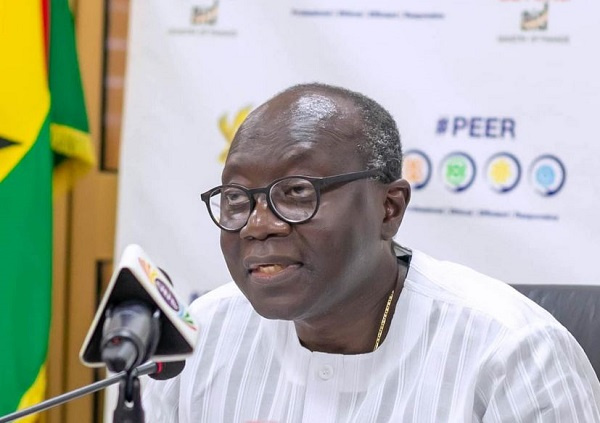Business Consultant and Director of Operations at Dalex Finance, Joe Jackson, says claims by the government that the economy is recovering after close to a year under an IMF support programme cannot be true.
According to Mr Jackson, the country’s economy is still under intensive care and receiving treatment.
Last week, Ghana reached a staff-level agreement with the IMF for a release of a second 600 million dollars under the 3bn IMF bailout.
Following this, Finance Minister Ken Ofori-Atta said the development was a sign that the economy was seeing a rebound and recovering.

But the Business Consultant thinks otherwise. In his view, such an assertion cannot be right.
Speaking in an interview with Accra-based GHOne television, Mr Jackson insisted that more needs to be done to ensure the full recovery of the economy.
“The best analogy I can give was that somebody had a road crash, entered into a coma, was rushed to the hospital and was given some blood transfusion and now his condition is described as stable. But the person is still very sick, let’s be clear.”
“Last year, we suffered a bad crash and in December last year we raised up our hands and said we cannot pay [our debts] and everything was going south with us going downhill at a horrendous rate. In March we signed a bailout agreement with the IMF which gave us some blood transfusions and gave us some life, but we are still in intensive care, let nobody be deceived”, he stressed.
He added that any form of complacency could lead to a relapse in the country’s dire economic situation.
“This economy needs careful management, this economy is still in intensive care, and you cannot take your eyes off the monitors for a minute. If we do, things could go south very very quickly”, he added.
Mr Jackson is not the only one to have made such a remark about the country’s economic situation.
The Minority in Parliament have made similar comments insisting that the government is not being truthful to Ghanaians.
According to Minority Spokesperson on Finance, Isaac Adongo, all the key economic indicators like inflation, interest rates and economic growth have all worsened compared to where they stood last year.
“The data is quite clear that the situation is worse today than it was last year and yet we would want to believe that last year was the worst period; that after the IMF in 2023, it will get better than last year, but the data suggests otherwise.
“What they have sought to do is to compare mangoes with pineapples. You can’t take end of year inflation of 2022, and compare it to any of the inflations other than December 2023. That is how you compare apples to apples. Because the inflations that you find during any period, year-on-year are compared to the same period the previous year and we are not in December.”
Mr. Adongo added “The inflation we are seeing today has different season pressures compared to December. In December we all know the demand pressures, we know Christmas comes and there is a lot of pressure on the cedi because people are looking for foreign currencies to stock for Christmas and the inflation as of now has not experienced that, so you cannot compare that to the inflation that will be attained in December.
“Again, you cannot compare food inflation in the period of harvest to food inflation in the period of planting.
“In June 2022, when we were in the worst situation, inflation as at June was 29.8 percent. In 2023 with IMF in the boat and we were expecting things to get better, it worsened to 31.7 percent.”
Mr Adongo, who is also the MP for Bolgatanga Central emphasised that the government has put the Ghanaian people under severe economic stress with constant increases in utility tariffs and taxes.
